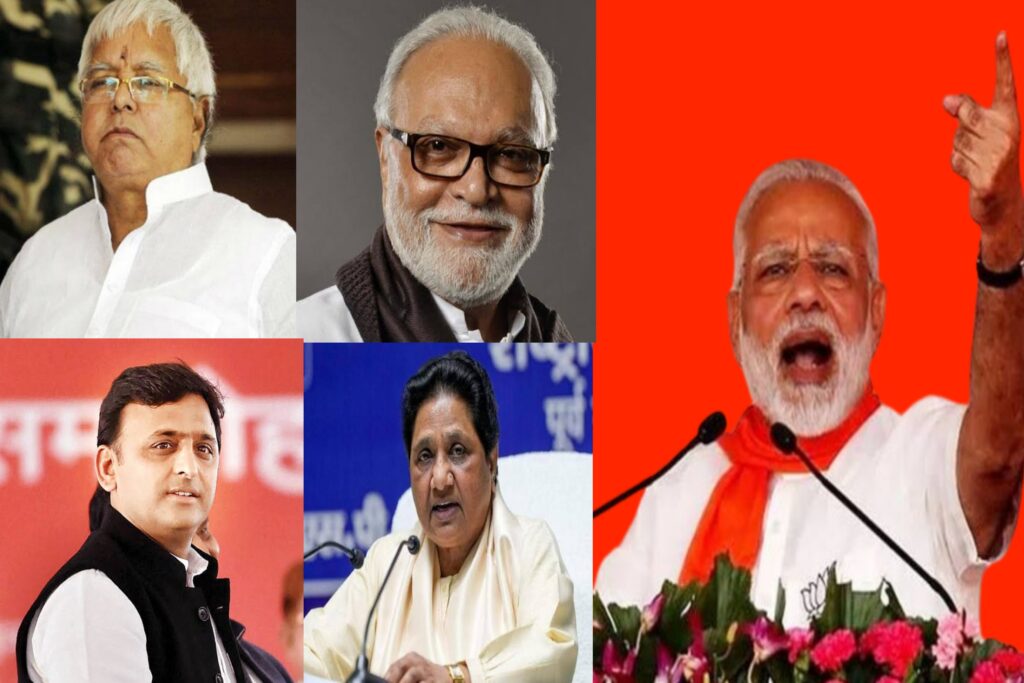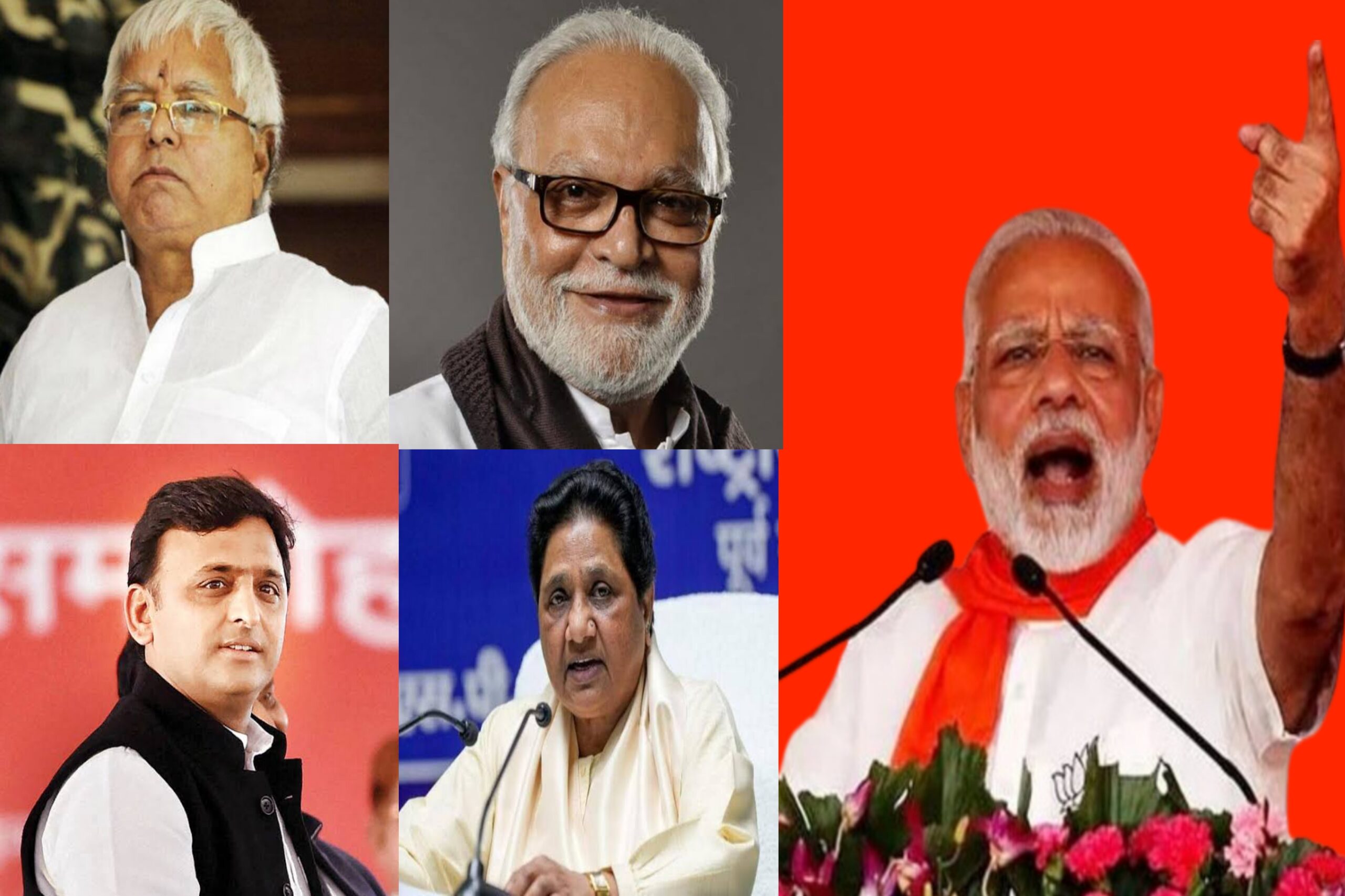
In the heart of India’s capital, New Delhi, stands the Maharashtra Sadan, a building that symbolizes not just the architectural grandeur of a state but also the turbulent political journey of Chhagan Bhujbal, the former Minister of Public Works in Maharashtra. Bhujbal, a prominent leader from the OBC (Other Backward Classes) community, has long been an advocate for the rights of the Bahujan Samaj, following the teachings of Phule, Periyar, Baba Saheb Ambedkar, and Chhatrapati Shivaji Maharaj.
Bhujbal, during his tenure as a minister in the Congress and NCP government, oversaw the construction of the Maharashtra Sadan. The building was adorned with life-size photographs of Shivaji Maharaj, Jyotiba Phule, Mata Savitribai Phule, and Baba Saheb Ambedkar—figures who represent the fight against caste oppression and social injustice in India. However, what should have been a proud moment for the state and its marginalized communities soon turned into a political nightmare for Bhujbal.
Under the leadership of then-Chief Minister Devendra Fadnavis, an inquiry was launched against Bhujbal, leading to his imprisonment. The reason? Allegations of corruption in the construction of Maharashtra Sadan. It is worth noting that Bhujbal’s persecution did not happen in isolation; it is part of a broader pattern where leaders from marginalized communities, especially those who challenge the status quo, face disproportionate scrutiny and legal challenges.
The inquiry against Bhujbal seemed less about corruption and more about targeting a leader who dared to give prominent space to icons of social justice in a state building. Even today, according to reports, the images of these leaders are banned in Maharashtra Sadan—a stark reminder of the deep-seated caste biases that persist in Indian politics.
The Double Standards of Accountability
The story of Chhagan Bhujbal is not an isolated case. It reflects a broader pattern where leaders from Dalit, backward, minority, and marginalized communities face disproportionate scrutiny. The legal system, which should be a pillar of justice, often becomes a tool to keep such leaders entangled in legal battles, draining their resources and energy. Their cases drag on in the courts, where judges and lawyers often belong to the same upper-caste networks that benefit from the status quo. As a result, justice is delayed, if not outright denied.
Contrast this with the recent incident involving the fall of a statue of Chhatrapati Shivaji Maharaj, which was built at a staggering cost of Rs. 3300 crores. The statue, a project marred by massive irregularities and corruption, collapsed within nine months of its completion. Yet, instead of holding those responsible accountable, the leadership under Prime Minister Narendra Modi issued an apology and moved on. No in-depth investigation, no accountability, and no justice for the taxpayers whose money was squandered.
This stark contrast raises critical questions about the selective application of justice in India. When leaders like Mayawati or Akhilesh Yadav, who belong to marginalized communities, take up large-scale projects, they are immediately labeled as corrupt, and inquiries are launched against them. Mayawati’s efforts to beautify Lucknow and develop Greater Noida and Noida, which have significantly boosted the region’s economy, were met with accusations of corruption. However, similar allegations against leaders from more privileged backgrounds often result in mere apologies rather than legal action.
Akhilesh Yadav’s Stand Against Injustice
Akhilesh Yadav, the former Chief Minister of Uttar Pradesh, has been vocal about these double standards. He has consistently attacked the ruling BJP, highlighting how the issues of exploited and deprived communities are being sidelined. Yadav’s stance is a reminder that the fight against injustice and corruption is far from over, and it is leaders like him who continue to challenge the status quo.
The Role of the Media and Judiciary
The media, which should ideally serve as the fourth pillar of democracy, has often failed to hold the powerful accountable. Instead, it plays a significant role in perpetuating caste biases by selectively highlighting or downplaying corruption cases based on the community background of the accused. The judiciary, too, is not immune to these biases. When legal cases involving leaders from marginalized communities are delayed or dismissed, it sends a message that the rule of law is not applied equally to all citizens.
A Call for True Accountability
The incidents surrounding Chhagan Bhujbal and the fall of the Shivaji Maharaj statue expose the deep-rooted caste biases that continue to plague India’s political and legal systems. The selective targeting of leaders from marginalized communities, the lack of accountability for those in power, and the failure of institutions like the media and judiciary to act impartially are all symptoms of a larger problem.
As citizens, it is crucial to demand transparency and accountability from all our leaders, regardless of their caste or community background. The fight for justice must be relentless, and the rule of law must prevail over the “law of revenge” that seems to be taking hold in our society. Only then can we hope to build a truly just and equitable India.

